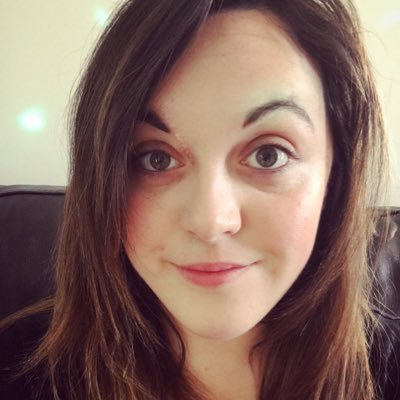
Gemma Parry has been working as a journalist in South Wales since 2015 – but decided early on in the pandemic to change course and retrain as a mental health nurse. In her blog for newsbreak, she explains why:
For as long as I can remember, my number one goal in life was to become a journalist. I’m serious – you can go back and check my diaries, my school books, home videos and the family magazine I set up in my home with paper, scissors and glue (it was called the Parry Paper – it didn’t do too well as there was only ever one edition, but the intent was there). While my friends in primary school dreamed of becoming vets or firefighters, I was dreaming of the day I could sit at a desk and write all day, or get my interview with the Prime Minister.
I did actually go on to do both of those things, and I can tell you with complete conviction that I have loved every single second of it. Journalism has led me to meet so many fascinating and wonderful people, not only amazingly talented fellow writers and broadcasters, politicians and inspiring people with incredible stories, but also some of my very best friends and my husband. It has given me so much more than I ever dreamed it would, and I am so grateful that I had the chance to do it.
But there are negatives that come with that amazing, demanding and all consuming job. I experienced my burnout while I was at my first job. It wasn’t at all that where I was was a bad place to be. On the contrary, being in that newsroom was so wonderful and I often miss being there and the people I worked with. My issue, now I look back, is that I tried to do too much at once, set my expectations of myself far too high and forgot to bear in mind my history of poor mental health.
Journalism is an all-consuming industry to be in. I spent so much time, often well into the early hours of the morning, hunting down my next story, watching social media, feeling anxious that I had made errors in pieces that weren’t picked up. It spiralled into an unhealthy habit, leaving me in a constant state of anxiety and convincing myself that I wasn’t doing as good a job as those around me. It was the first time I really took a break from work and focused on myself, and found that I was well again, I had a real drive to want to help people like me to get to a better place mentally.
I toyed with changing career for a little while but, as fellow journalists will know, journalism is a bug. It bites you, and it’s so hard to leave the buzz of it behind. It was only when the coronavirus pandemic hit last year that I really thought about what I could do to help.
I like to think that I have always been a caring and compassionate person. I like to help my friends and family to navigate difficulty in their lives. It gives me a massive sense of achievement to be helpful, kind and useful to others. I’ll admit at the beginning of the pandemic, I struggled to cope with the prospect of not seeing my family and friends in person and, as much as I would have liked to have volunteered within the NHS, I just wasn’t in the right headspace. But a few months in, I had applied to Swansea University to retrain as a mental health nurse.
It felt like the right course of action. In years to come, the enormity of what we have been through in the last year will, I think, see increasing numbers of people accessing mental health support. I want to be there on the frontline when that happens, so that I can change things.
While I study, I’m still freelancing as a journalist. Now that I’m learning more and more about mental health every day, I’m starting to see how much it plays a role in the media industry. I often think people underestimate how hard journalism truly is, and the toll it can take on you mentally. There are stories that stick with you for all the wrong reasons, a huge increase in internet trolls taking time out to be cruel (often because they simply can be), and the pressures and stress of deadline days and live broadcasts. I still love the job, and I imagine one day, instead of giving it up completely for nursing, I’ll try to find a way to merge the two. But it’s a tough gig, especially when you’re in the middle of a global pandemic.
Would I say don’t go into journalism? Absolutely not. I don’t regret a second of it, and I’m sure there are others who would say the same. But, would I say that more awareness around mental health within the media industry is needed? Definitely.
